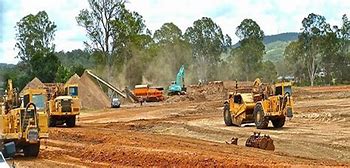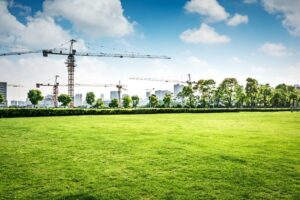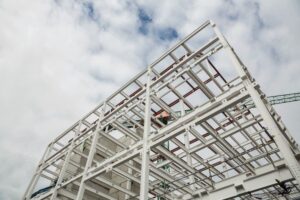
Factors to Consider When Finalizing Land for Your Industrial Project
General Introduction
Choosing the right land for your industrial project is a crucial decision that can significantly impact the success and efficiency of your business. Whether you are planning to build a factory, warehouse, or any other industrial building, selecting the right location requires careful consideration of various factors.
In this article, we will explore the key aspects to be mindful of when finalizing land for your industrial construction project.
Location Accessibility and Connectivity
One of the primary considerations when choosing land for an industrial construction project is its accessibility and connectivity. Easy access to major roads, highways, and transportation hubs is important for efficient logistics and the smooth movement of goods. Proximity to ports, railways, and airports can significantly minimize transportation costs and boost the overall efficiency of the supply chain. Additionally, a location with good connectivity will facilitate the easy conveyance of employees, customers, and suppliers, reducing commute times and enhancing productivity.
Zoning and Permits
Before finalizing any land for your industrial building project, it is crucial to ensure that the area is zoned for industrial use. Zoning regulations vary from one region to another, and compliance with their regulations is essential to avoid any kind of legal issue in the future. Moreover, obtaining the necessary permits, such as environmental clearances and building permits, should be the foremost priority to avoid delays in project and potential fines.
Land Size and Topography
The size and topography of the land are key factors that are most likely to impact the design and layout of your industrial facility. Ensure that the land area is sufficient to accommodate your industrial project’s current and future needs. A flat and level surface is generally preferred, as it reduces construction costs and offers better flexibility in building design.
Steep or uneven terrain may require additional cutting, filling, and site preparation, leading to higher overall expenses.
Utilities and Infrastructure
Access to reliable utilities and infrastructure is important for the successful operation of your industrial project. Adequate water supply, electricity, and waste disposal systems are essential for the smooth functioning of your industrial facility. Verify that the land is connected to the necessary utility networks and evaluate the capacity to meet your industrial project’s demands. Moreover, consider the availability of telecommunication services, as a robust network is crucial for modern industrial operations and facilities.
Workforce Availability
The availability of a skilled and trainable workforce in the vicinity of your chosen land for setting up an industrial facility is a crucial factor to consider. Labor scarcity can hinder production and shoot up labor costs. Research the local labor market to understand the availability of skilled labor in your industry. Additionally, take note of the quality of educational institutions and vocational training centers nearby, as they play a vital role in shaping the future talent pool.
Market and Supplier Proximity
Proximity to your target market can significantly impact the distribution and delivery of your manufactured products. Being closer to your customers minimizes transportation time and costs, enhancing your competitiveness in the market. Likewise, consider the proximity of your suppliers, as it can streamline your supply chain and minimize lead times for raw materials and components.
Environmental Factors
Evaluating environmental factors is essential for sustainable and responsible industrial development. Conduct thorough environmental evaluations to identify any potential risks, such as pollution, soil contamination, or flood hazards. Give priority to lands with minimal environmental impact to ensure compliance with environmental regulations and avoid future liabilities.
Security and Safety
Industrial facilities are more likely to be targets for theft, vandalism, and accidents. Consider the security of the location, including the crime rate in the area and nearby areas and the availability of security services. Additionally, evaluate the risk of natural disasters like floods, earthquakes, hurricanes, and storms and implement appropriate safety measures to protect your investment and personnel.
Future Growth Potential
Anticipating the future growth potential of the location is essential for long-term success. Investing in a location with potential for economic and infrastructural growth can yield significant benefits as your project expands. Evaluate local development plans, government initiatives, and industrial trends to anticipate the region’s growth prospects.
Cost Considerations
Finally, while selecting the perfect land for your industrial project, it is important to factor in all costs involved. This includes not only the purchase price of the land but also the other expenses related to the project, such as infrastructure development, permits, legal fees, and ongoing operational costs. Conduct a comprehensive cost analysis to determine the overall affordability of the chosen land.
Wrapping Up
To conclude, the process of finalizing land for your industrial project requires a well-rounded and detailed approach. By considering factors such as location accessibility, zoning, utilities, labor availability, and environmental aspects, you can make an informed decision that aligns with your business objectives and sets the foundation for a successful and sustainable industrial venture. Conduct thorough research and seek professional advice from experts to make the best choice for your industrial project’s future and select the land accordingly.





